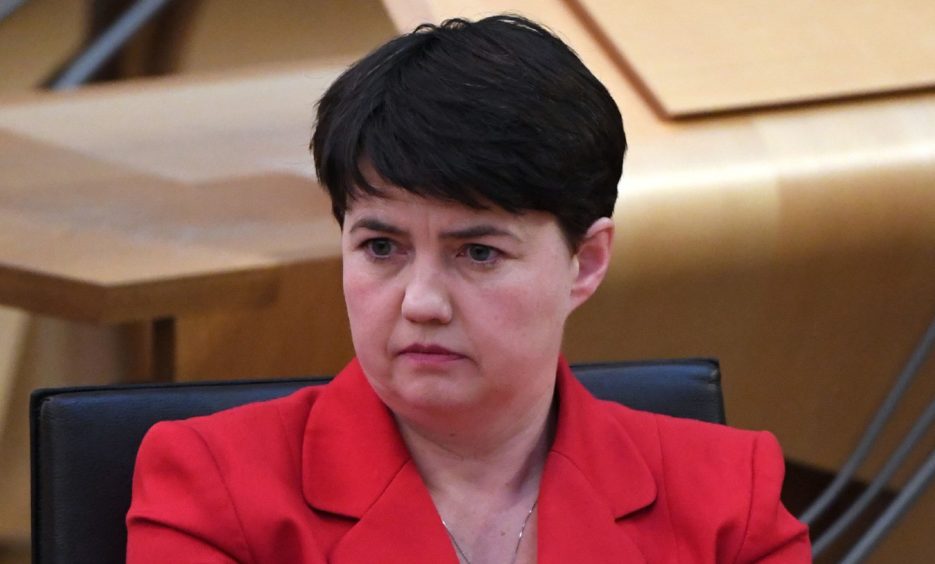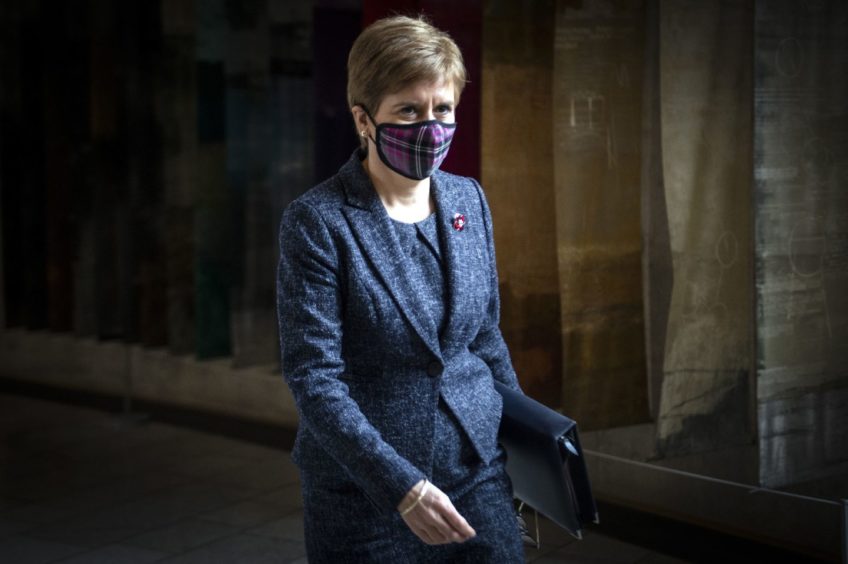A care home industry chief has accused others of putting “more weight” on a new report on positive Covid-19 cases transferred from hospitals to care homes than it “ever intended to deliver”.
A report by Public Health Scotland this week revealed more than 100 people who had tested positive for Covid-19 were discharged from hospitals into care homes without first receiving a negative test.
However, it also claimed hospital discharges were not “statistically significant”, instead stating that the percentage of care homes with an outbreak “increased progressively” with care home size.
Scottish Conservative Holyrood leader Ruth Davidson, who believes a public inquiry must start immediately, has called for statisticians to “go back and fill in the blanks”, claiming that “vital pieces of information have been left out” of the report.
However, Dr Donald Macaskill, chief executive of Scottish Care, the representative body of the independent care sector, accused others of putting “more weight” on the report than it “ever intended to deliver”.
It had a narrow remit. It was never designed to take the place of a public inquiry and to give us all the answers.”
Donald Macaskill, chief executive of Scottish Care.
The report was published after Health Secretary Jeane Freeman commissioned Public Health Scotland to carry out work to identify and report on discharges from care homes during the first wave of the virus between March 1 and May 31.
Dr Macaskill said: “We’ve called for additional work to be done to build on that report but it’s unfair to the authors of the report and their professionalism to either impugn them as some people have for not being independent or to suggest their report doesn’t give them all the answers to the questions we might have because we didn’t ask them all the questions.
“It had a narrow remit. It was never designed to take the place of a public inquiry and to give us all the answers.”
‘Human rights-based inquiry’
Since the spring, the care home chief has called for a “human rights-based” inquiry to take place but believes now is “not the time” for this, with the country facing a second wave and “growing number” of deaths in care homes.
This is in stark contrast to opposition parties and unions who have supported calls for an urgent public inquiry into the handling of the pandemic – with a particular emphasis on the situation in care homes.
Dr Macaskill argued any future inquiry must include those who have been impacted most, including residents, family, staff and providers in care homes but that they are “not in a place” to contribute to what is likely to be a public inquiry in the midst of the pandemic.
He said: “I do ask people who are calling for a public inquiry to ask how you would go about that? How would you enable a public inquiry to be transparent, open and inclusive in the middle of a pandemic when normal activity can barely happen?
“That’s distinct from learning lessons and Wednesday’s report was a contribution to the lessons we need to learn but we need to do more.”
‘Inquiry needs to look at whole process’
The industry chief believes a public inquiry must be based on the “principle of accountability” and therefore should involve all those who were key to making decisions about guidance, practice, advice and science.
He also believes the process should look at the “legality of practice” to determine whether or not actions taken were “proportionate and reasonable” at various stages.
“For me an inquiry needs to look the whole process of planning for a pandemic to the actual response, whether that’s about hospital discharge, whether it’s about guidance, whether it’s about the support which came, the role of scrutiny, the experience of PPE, and now is not the time to do that”, he added.
Scottish Labour health and social care spokeswoman Monica Lennon said the Scottish Government should “immediately begin” preliminary work on setting this up.
The MSP said “as a minimum” ministers should appoint a chair to lead the inquiry and hold discussions with opposition parties and key stakeholders on the terms of reference and what additional data need to be gathered to form the inquiry.
Report ‘doesn’t begin to tell full story’
Scottish Conservative Holyrood leader Ruth Davidson said a public inquiry must “start now”.
She added: “We still don’t know how high the true risk might have been from putting Covid-19-positive patients into care homes or the answer to the basic question of how many care homes suffered outbreaks after taking in a Covid-19-positive patient.”
Unions have also backed an urgent public inquiry and said the report released on Wednesday “doesn’t begin to tell the full story”.
At what point was the First Minister aware of this and who in government approved the decision that public health experts called ‘putting a match to tinder’?”
Rhea Wolfson, GMB Scotland
Rhea Wolfson of GMB Scotland’s Women’s Campaign, said: “Suspect and positive Covid-19 patients were transferred as early as March into care homes, a time when staff had no PPE guidance, proper PPE provision or testing regime.
“At what point was the First Minister aware of this and who in government approved the decision that public health experts called ‘putting a match to tinder’?”
Sector needs ‘fundamental change’
Deborah Clarke, head of community for Unison Scotland, said the care sector needs “fundamental change”.
She said: “Public inquiries into the failures to protect residents and staff – necessary though they are – shouldn’t be allowed to delay the urgent task of fundamental reform to radically improve our care system in Scotland.”
Age Scotland, which supports calls for a public inquiry, said it must address a number of key questions on who was behind policy decisions in relation to care homes.
Adam Stachura, Age Scotland head of policy and communications, said: “We must get answers to questions including who made decisions, when and why. Were care home staff given enough support at the beginning of the crisis in terms of staff numbers and PPE?
“And we need to know what exactly went on in Scotland’s hospitals and how decisions were made that resulted in older patients being discharged into care homes without being tested for coronavirus.”
Nicola Sturgeon dismissed calls for an immediate public inquiry into the impact of the coronavirus crisis on care homes during First Minister’s Questions on Thursday.
The first minister said with Scotland in the “grip of a second wave” of the virus the time is not right for such an investigation but she did restate her commitment to holding a “full public inquiry” in due course, which she said will examine what happened in care homes.
She added: “I am sorry for any error that I have made in this, I’ve said that many times before.
“I’m not carefully choosing my words – I probably don’t have the capacity to do that at the moment – I am trying to be as frank as possible and we’ve got things wrong and we will continue to try to put that right, and we will have all of the normal processes of accountability.”


